Business & Management
Uganda’s IGE Cohort 2022 Graduates: New IGE Program (2023-2027) Launched
Published
3 years agoon
By
Jane Anyango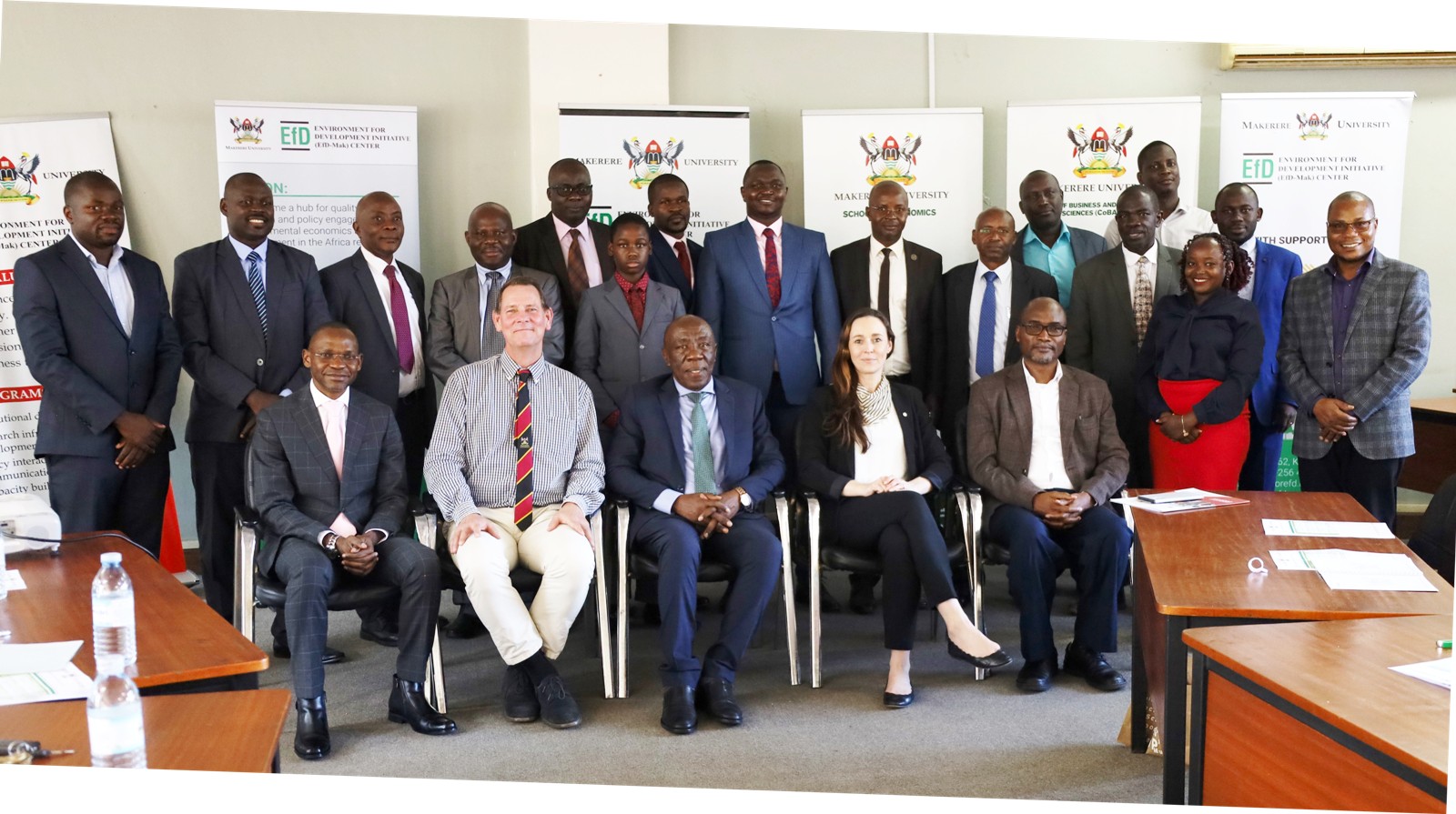
Uganda’s pioneer cohort of the Inclusive Green Economy (IGE 2022) has graduated with Certificates of Achievement and new IGE five year program (2023-2027) officially launched at Makerere University.
The ceremony organised by the Environment for Development Initiative (EfD-Mak Centre) was held on 5th April 2023 and presided over by the University Vice Chancellor. It was graced by the EfDs Global hub IGE program Lead and Co-leader Prof. Anders Ekbom and Emily Caesar, the EfD Advisory Board Chair, Prof. Umar Kakumba, the Principal College of Business and Management Sciences represented by Dr. Yawe Bruno.
The Deputy Vice Chancellor in charge of Finance and Administration Eng. Prof. Henry Alinaitwe launched the new IGE Phase and awarded certificates of Achievement to the IGE 2022 fellows on behalf of the Vice Chancellor.
Prof. Alinaitwe appreciated the Swedish IGE program coordinators, the Swedish government and the tax payer for the commitment and support towards the program as well as the human capacity building, research and infrastructure development on the continent.
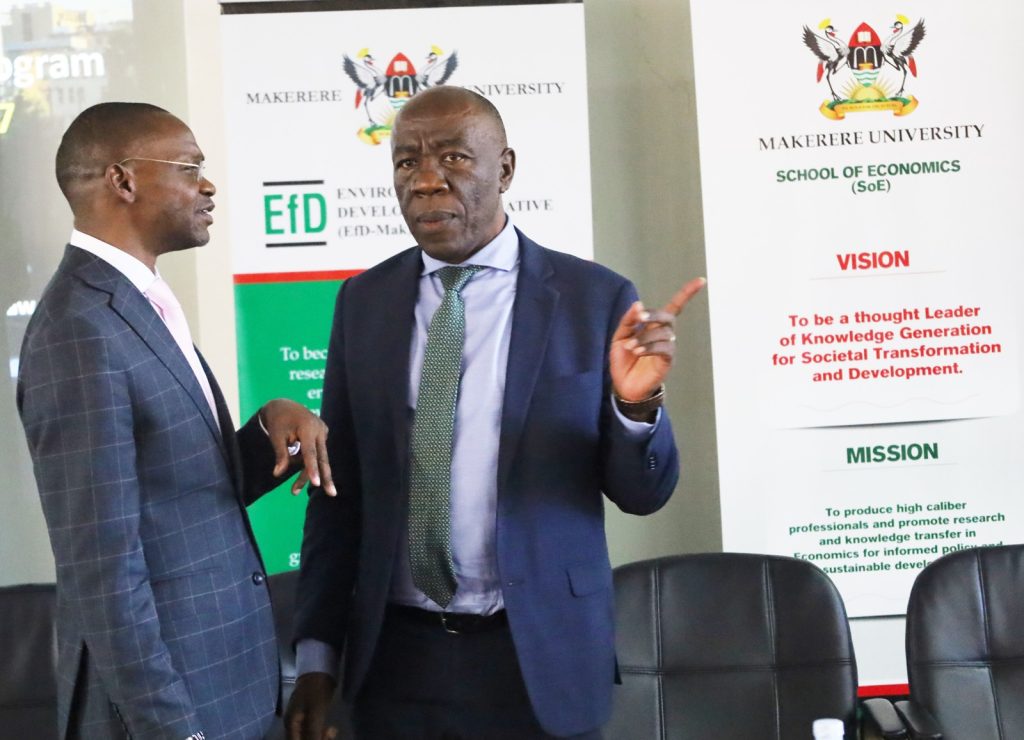
He observed that environmental degradation and climate change are common and eminent resulting from unsustainable human and economic activities and the ever the ever increasing population.
“The Inclusive Green Economy program is definitely for all of us. As a university, it gives us the opportunity to interact with various stakeholders, policy makers key ministries and it means, we already have some key contacts as extra resources. As a university, we want to be seen to be impacting society “
Alinaitwe implored the EfD-Mak Centre and IGE fellows to collaborate with the Economic Policy Research Centre to conduct research in environmental, economic and agricultural matters among others.
The Leader of the IGE program at the EfD Global hub at the University of Gothenburg Sweden Prof. Anders Ekbong said the program collaborates with the EfD Centres across the globe to support and build capacity in government ministries and agencies.
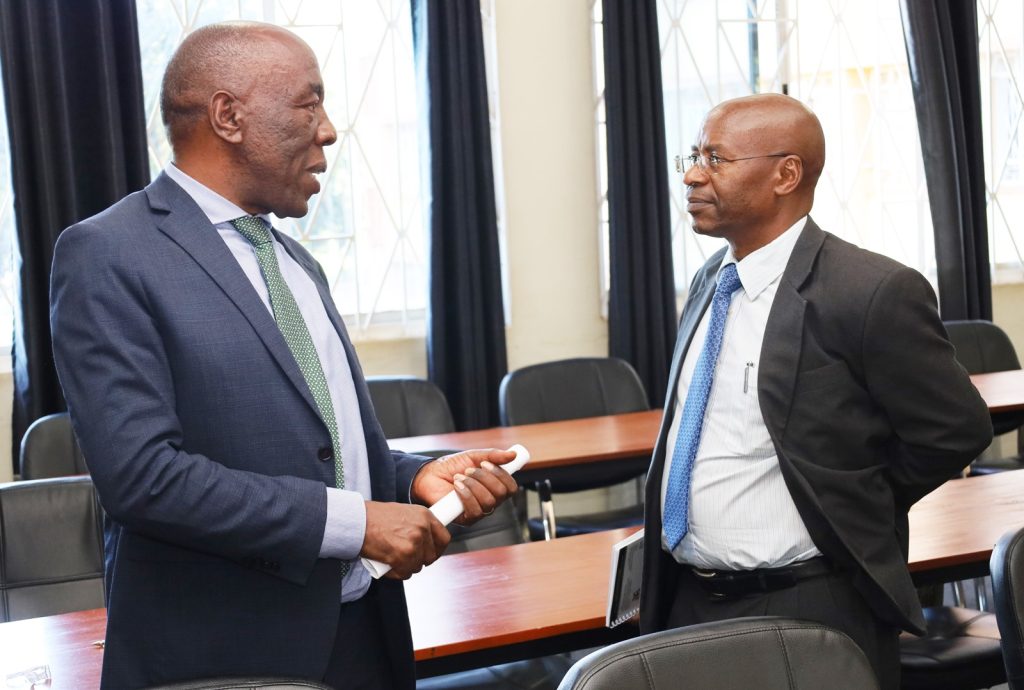
The EfD contributes to more effective environmental management to policy relevant research capacity development and policy engagement and the IGE is part of this.
In 2023 and beyond, Anders said EfD and IGE will jointly focus on sustainable energy transitions and interdisciplinary collaboration.
“An Inclusive Green Economy is an economic development that improves human being and social equity while significantly reducing environmental risk and ecological scarcities. The program strives to avoid economic growth that is attained at the expense of the environment and includes the aspect of inclusion such as social acceptance, public involvement in planning, decision making and follow up”.
IGE is a capacity building program for senior public servants in East Africa and economic policy instruments to achieve green transitions. Other parts of EfD focus on academic capacity building while the IGE is in this, it translates research into policy and practice, bridging gaps between research and policy”. Anders explained
He said, during the two years, the IGE program covered 5 countries and 55 civil servants have been enrolled constituting the IGE Alumni/fellows.
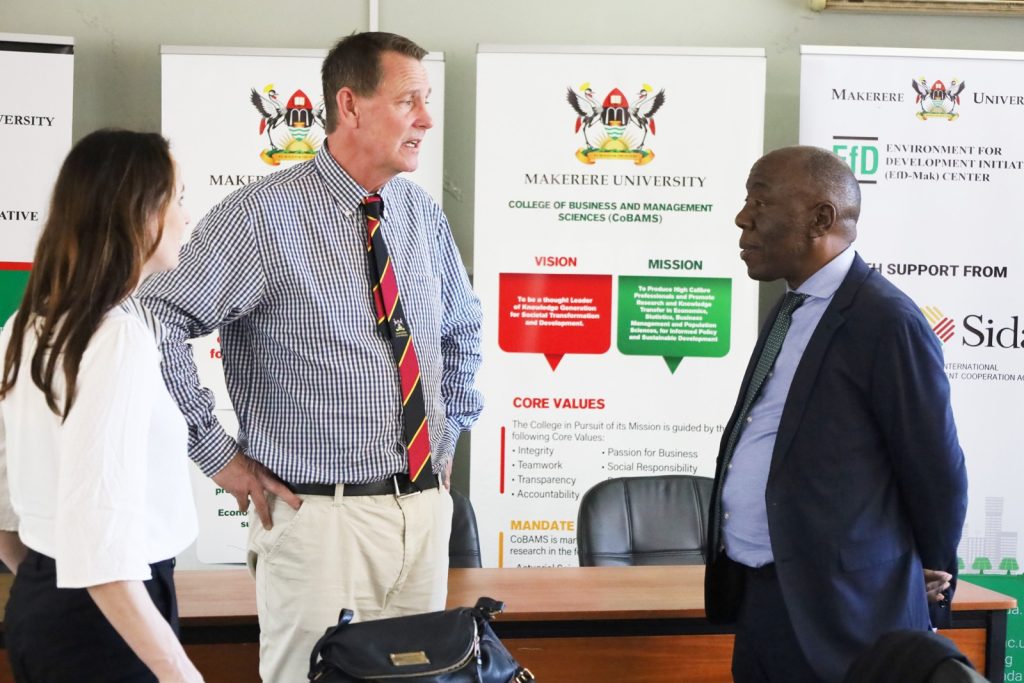
The program according to Anders has received 7.5 million dollars to implement the second phase of a slightly modified IGE program to accelerate transition towards inclusive green economy, develop skills and increase use of evidence based policy making and to build a community of practice on IGE to improve collaboration between government organisations, sector stakeholders and the academia.
The EfD-Mak Board Chairman Prof. Umar Kakumba said the university is delighted to have this strategic partnership that enabled the university join the global network of environmental economists to establish the Centre as one of the hubs, expanding opportunities of pursuing strategic partnership.
“The launch of the IGE for the next five years attest to the fact that the preliminary phase has been successful in a way of meeting the goals that were set and it is an affirmation on our part that Makerere continuous to be a university for the region and the university that is seeking the North-South partnership to create interventions that can address emerging problems related to environment”, Kakumba said.
The new IGE phase according to the board chair comes on the heels of capacity building that has taken place where the university has had the policy makers, governments and nongovernmental agencies spread across and where the training has come in handy of supporting the mission of training and capacity building and human capital development of the country.
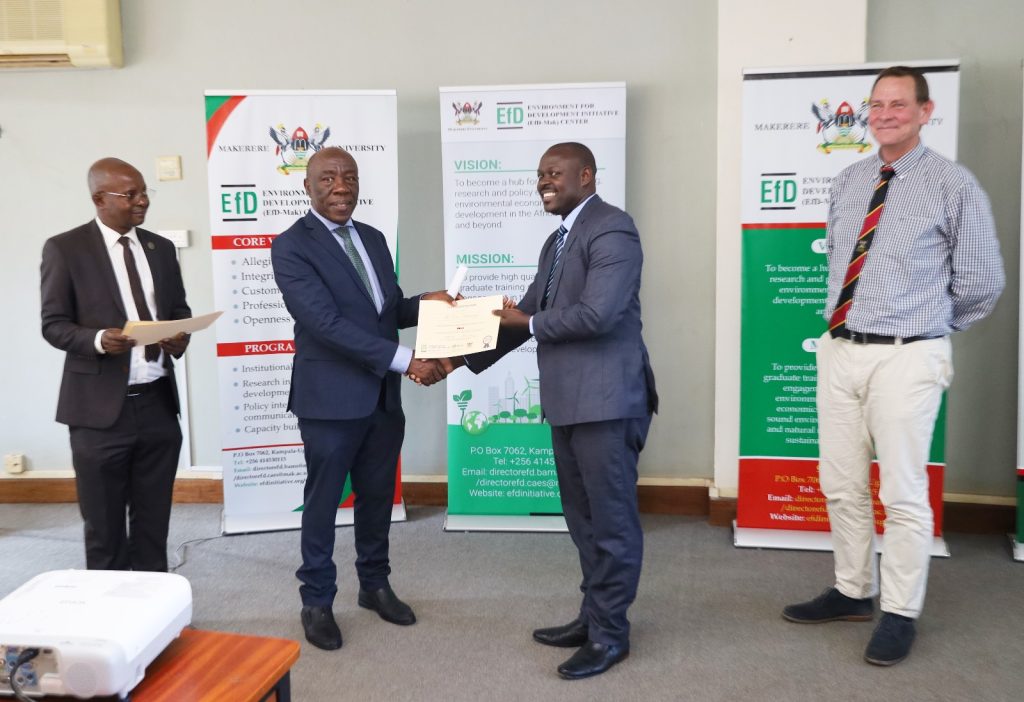
Kakumba underscored the importance of training people in policy as important
“Policy remains key without which a country may not succeed even with resource because they may be wasted. Policy must provide a pivot around which the entire operations rotate and policy must guide action and ensure that goals and objectives of any institution or project are achieved.
Representing the Principal CoBAMS, Dr. Yawe Bruno congratulated the fellows upon successfully completing the program. He said the activities executed by the EfD-Mak Centre speak to the University and college strategic objectives, the national development plan as well as the sustainable development goals.
“It is encouraging to learn that Sida has agreed to fund the new IGE phase for which we congratulate the IGE team lead. I appreciate the hard work of your team. The college appreciates the leadership of the EfD-Mak Centre for coordinating the IGE activities.
The Centre is a special kind of undertaking because its leadership is of hybrid nature bringing two colleges together and following that, we have joint academic programs”, The Principal appreciated.
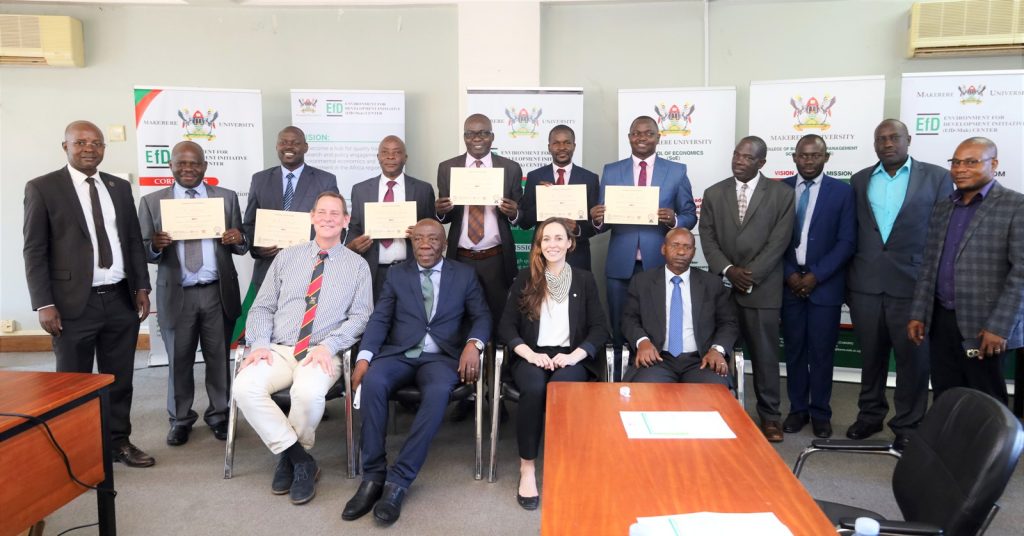
The Director EfD-Mak Centre Prof. Edward Bbaale said, Makerere University has had a long-term collaboration with Sida particularly through the university of Gothenburg including training PhD candidates specialising in environmental economics with the objective of ensuring that candidates come back home and participate in policy reviews, formulation and advising government in the area of environmental economics.
Later Bbaale said, it was realised that the candidates lacked a platform to engage with government and undertake several activities related to policy engagement and advise to government and hence the University of Gothenburg sought to create an institutional platform where research and engagement takes place leading to the birth of the EfD-Mak Centre – one of the 14 others across the world.
“I want to give credit to the institutional framework established at Makerere in that when Dr. Anders and colleagues came up with the concept of Inclusive Green Economy, there was an established platform to leverage.The Inclusive Green Economy is being implemented through the EfD-Mak Centre”. Bbaale said
Both the EfD and IGE operated as sister interventions sponsored by Sida from the University of Gothenburg. Within the two years implementation of the IGE, senior civil servants have been trained and because of the synergies of the IGE and EfD, the two beginning 2023 merged into one mega program to create more impact in green growth and environmental sustainability.
“The ingenuity and hard work of our leads in the University of Gothenburg and Sida agreed to sponsor another phase for five years where we are going to train government officials at senior level and uniquely we agreed as a team to recruit only five per year because the hands-on and other closely monitored activities that take place during the training”, Bbaale added.
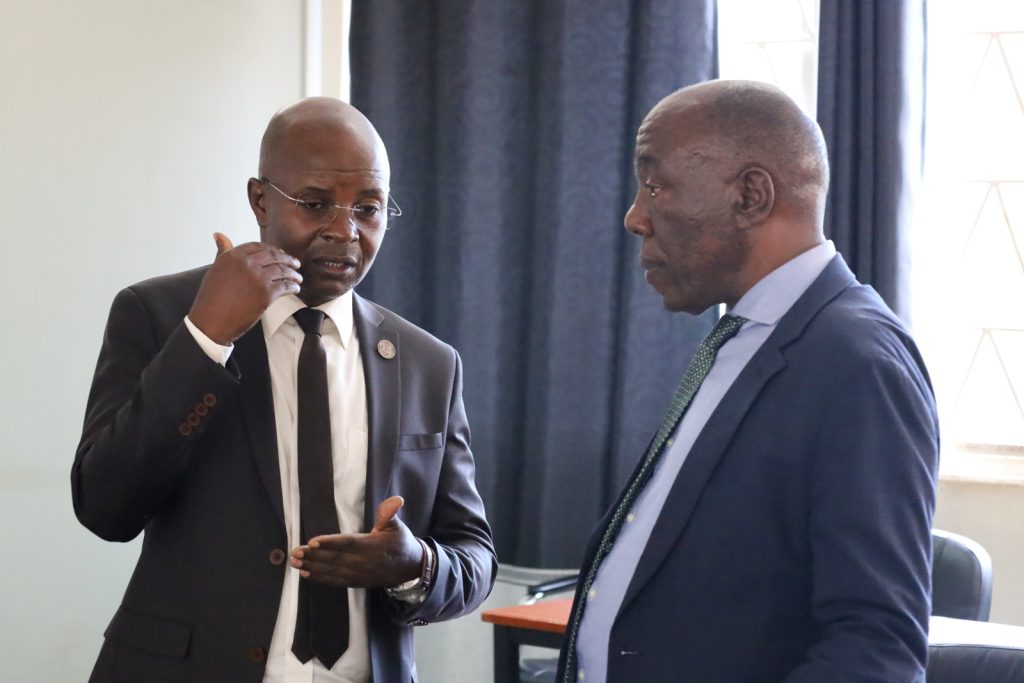
The participants are selected by heads of government ministries who recommend participants on the program. Through this program Bbaale said, both the visibility of the university and connection to other partners have improved.
IGE Graduands speak out
The graduating IGE fellows applauded the initiative as enriching
“We have been having knowledge on green economy but the inclusive bit has been missing. IGE program is helping us to make green economy inclusive because as we transition, we want programs, projects and investments which reconcile environment and economic development. The inclusive component is enabling us to have a win-win situation by bringing in the would-be losers for the green economy among the beneficiaries”, Aaron Werikhe from the National Planning Authority.
“The course is very timely for us particularly in two ways; It is going to enable previous participants form a community of practice that is going to connect the dots between what has been researched and what we are going to practice”, Andrew Masaba from the Ministry of Finance, Planning and Economic Development.
“As a city, we are struggling with issues of climate change, environment, waste, dust in the city and the increasing city population and the growing economy. This program has been very useful in helping us to learn the policy instruments that we can use in addressing environmental problems in the city, developing strategies and how to address climate change issues but also make economic growth of the city sustainable without affecting the environment.
So, we are developing a number of projects around this to make the city better. I thank the organisers, it has been a very good program and I pray that many other people benefit from it”, Robert Kyukyu Ag. Director Strategic Management and Business Development at Kampala Capital City Authority.
Courtesy Call on the Vice Chancellor
Prior to the launch of the new five year IGE program (2023-2027) and IGE 2022 cohort graduation ceremony, the IGE Lead team from the EfD Global Hub paid a courtesy call on the Vice Chancellor, Prof. Barnabas Nawangwe in his office in the Frank Kalimuzo Central Teaching Facility.
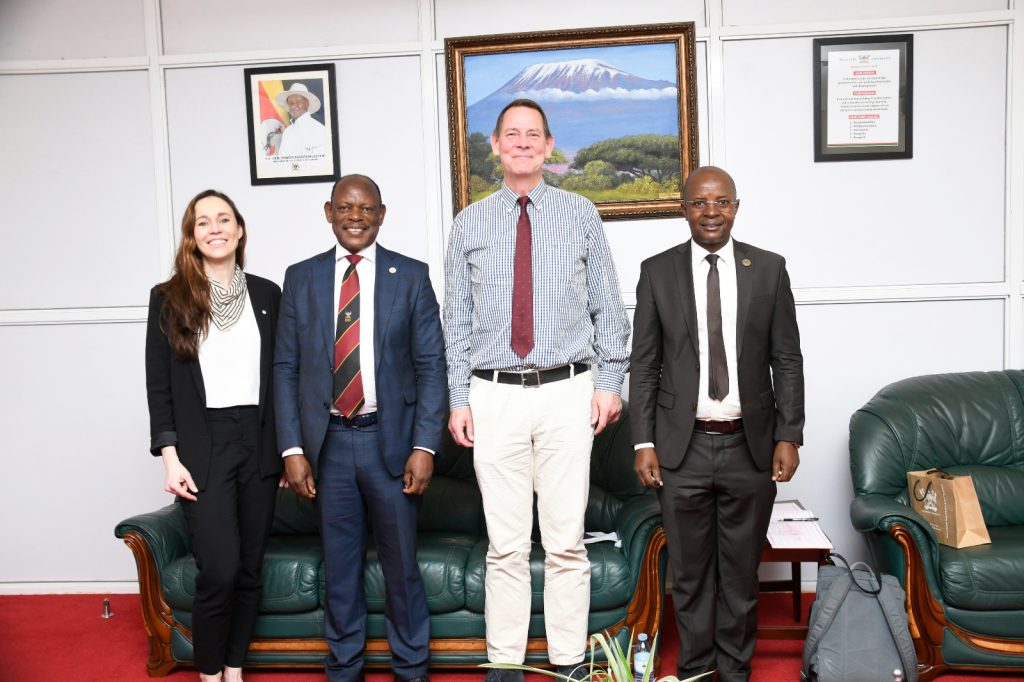
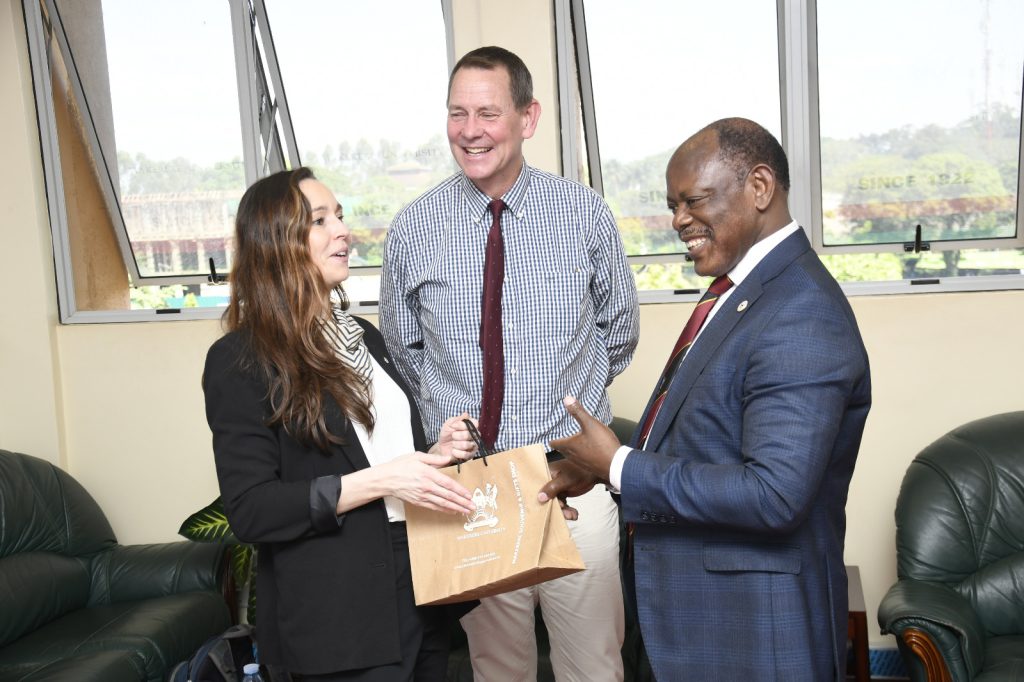
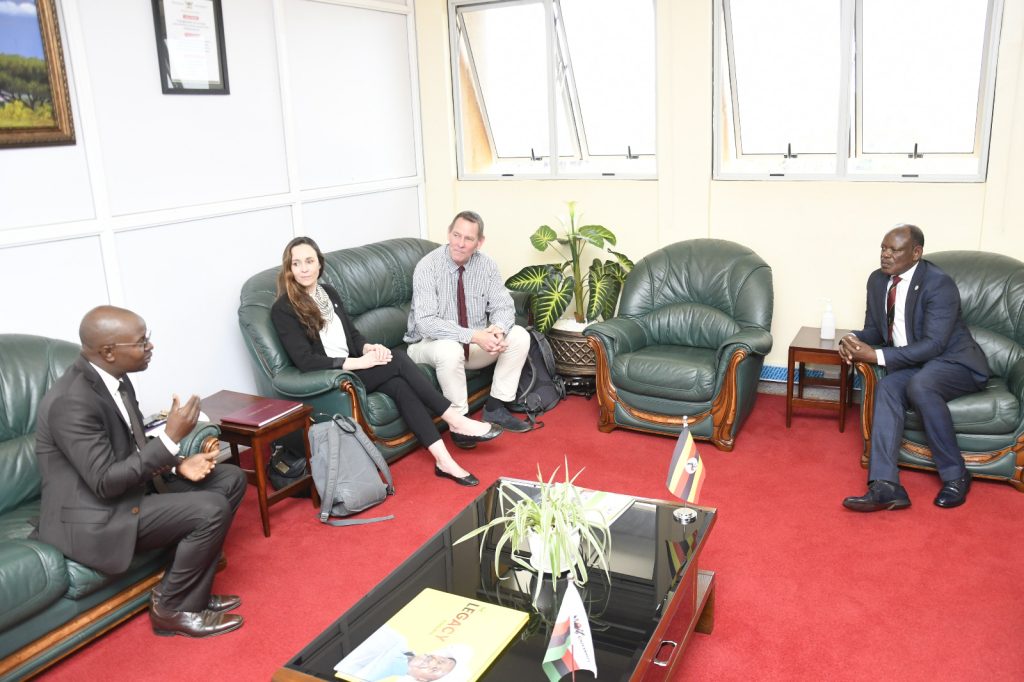
You may like
-


Over 9,200 to graduate at Makerere University’s 76th Graduation
-


Mak Selected to Host Alliance for African Partnership Africa Office
-


Uganda has until 2030 to end Open Defecation as Ntaro’s PhD Examines Kabale’s Progress
-
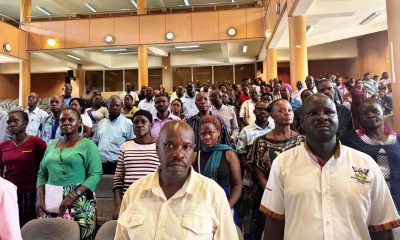

Support Staff Trained to Promote Safety of Students and Stakeholders
-
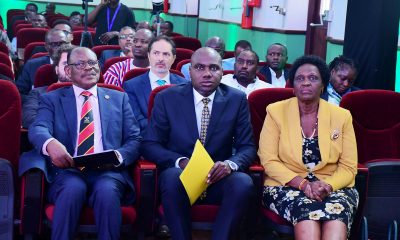

First African Symposium underscores the role of the Centre of Excellence for Africa Climate-Sensitive Macroeconomic Modelling
-
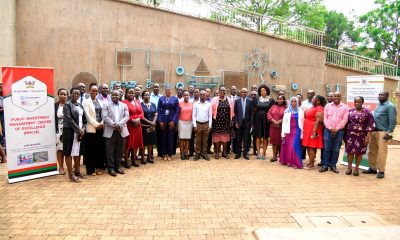

Makerere Hosts Second Cohort of MoKCC&MA Procurement Officers for E&S Safeguards Training
Business & Management
Celebrating Academic Excellence: CoBAMS Presents 975 Graduands at Mak 76th Graduation Ceremony
Published
4 days agoon
February 26, 2026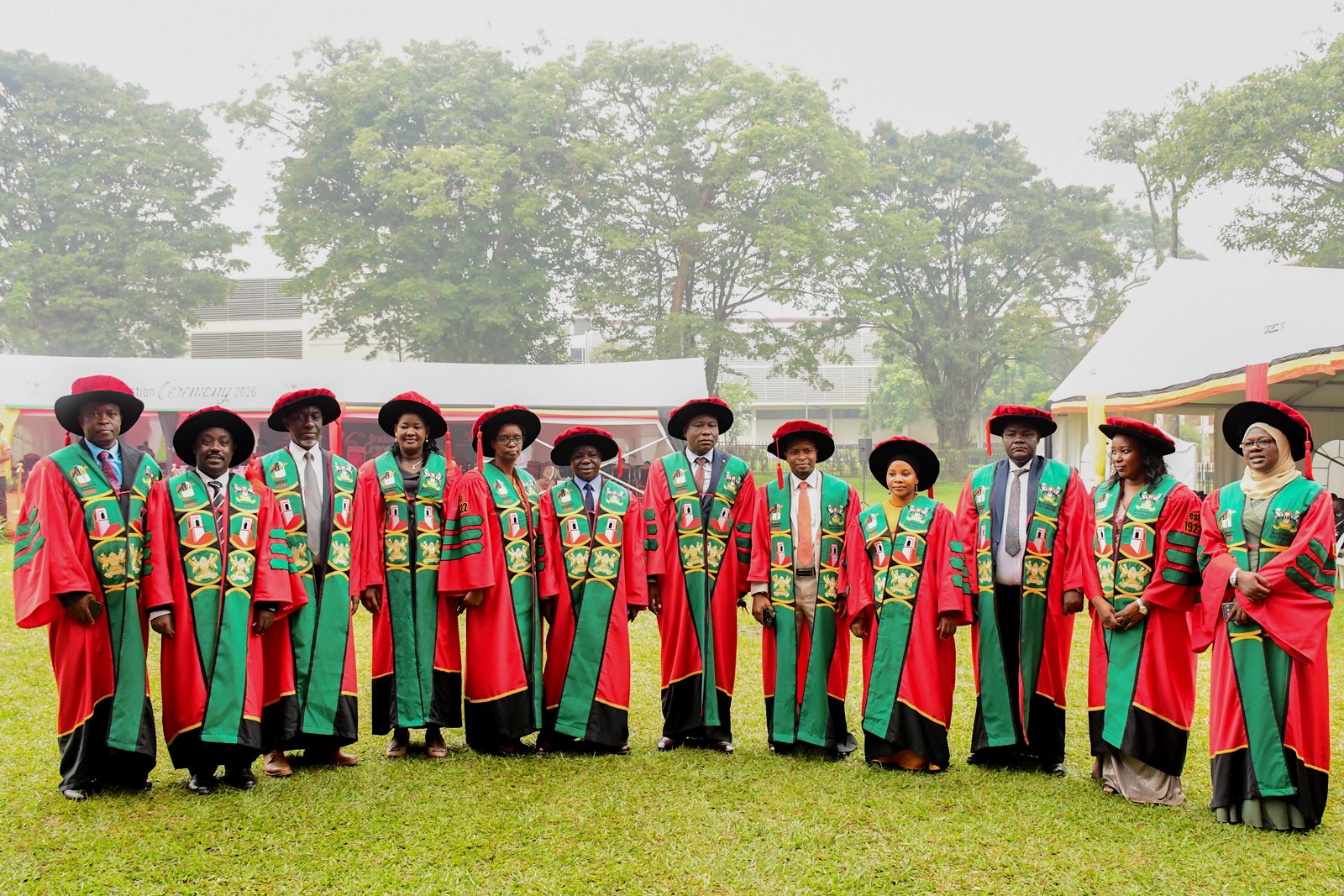
26th February 2026– The third day of Makerere University’s 76th Graduation Ceremony, held on 26th February 2026, underscored the University’s central role in shaping economic thought, business leadership, and public policy in Uganda and beyond. On this day, the College of Business and Management Sciences (CoBAMS) together with Makerere University Business School (MUBS) presented their graduands for the conferment of degrees and award of diplomas.
CoBAMS Graduation Statistics
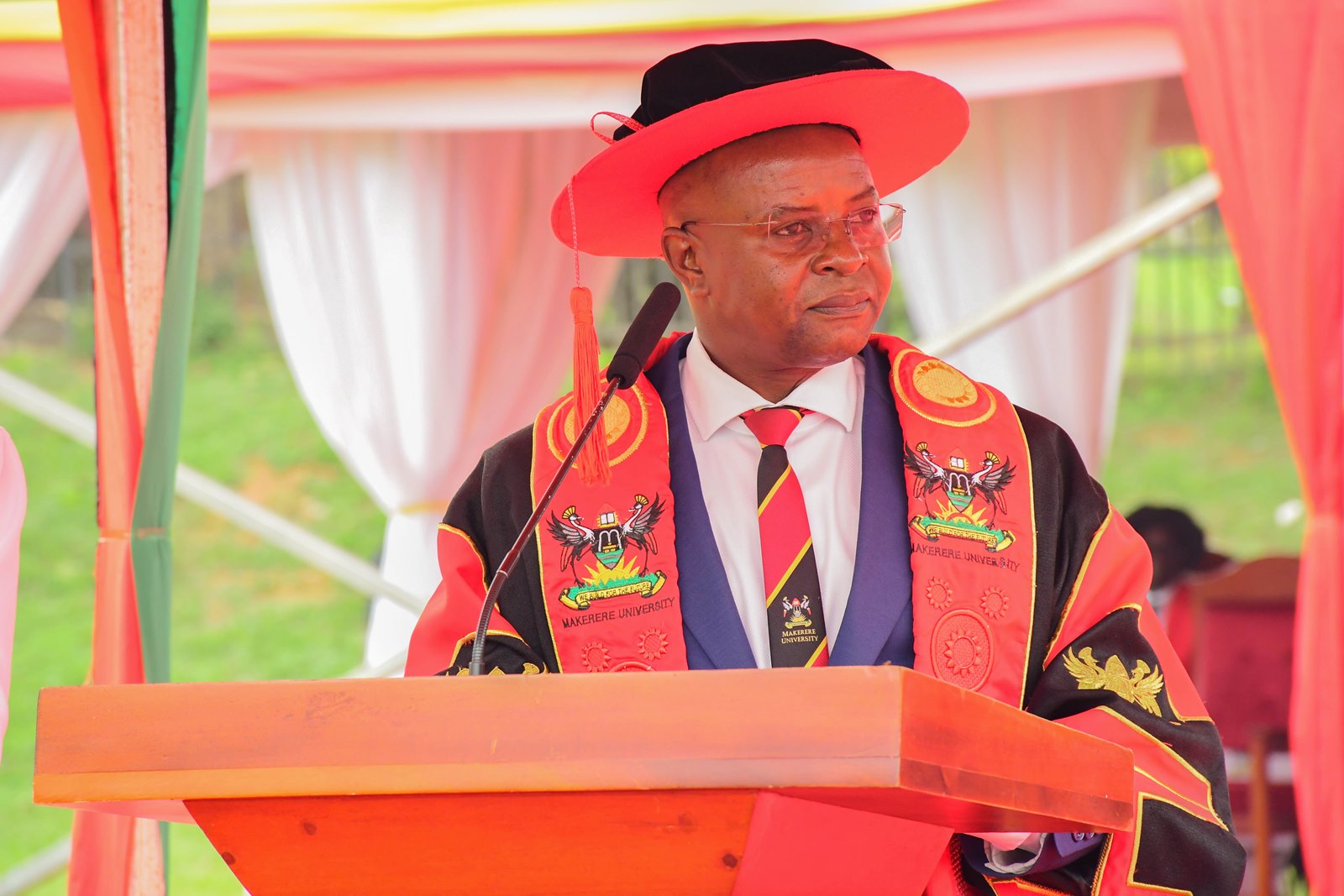
Across the University, a total of 9,295 graduands will be presented during the 76th graduation ceremony (24th to 27th February 2026). The College of Business and Management Sciences presented 975 graduands, comprising 14 Doctor of Philosophy (PhD) degrees, 334 Master’s degrees, 2 Postgraduate Diplomas, and 625 Bachelor’s degrees. This robust academic profile reflects the College’s sustained investment in advanced research, graduate training, and industry-relevant programmes designed to equip graduates with analytical competence, ethical grounding, and leadership capacity required to contribute meaningfully to economic transformation, institutional development, and enterprise growth at national, regional, and global levels.
Prof. Nawangwe emphasized that CoBAMS remains a key pillar in advancing the University’s research agenda. Through strategic partnerships with government ministries, the business community, and the private sector, the College has produced over 60 high-quality research outputs under the CoBAMS Working Paper Series, many of which have been published in internationally recognized peer-reviewed journals. These outputs he said are aligned with the UN Sustainable Development Goals (SDGs), Uganda’s 10-fold National Economic Growth Strategy, and the University’s Strategic Plan, reinforcing CoBAMS’ role in driving evidence-based development.
The Vice Chancellor commended the College for its five dynamic research centres—Entrepreneurship and Innovation; Statistics and Demography; Public Investment Management; the Environment for Development Initiative; and the Centre of Excellence for Africa Climate-Sensitive Macroeconomic Modelling—which collectively form the backbone of the College’s research enterprise. Through these centres, he noted CoBAMS continues to advance high-level scholarship, foster interdisciplinary collaboration, and deepen policy engagement, firmly positioning itself at the forefront of national and regional economic discourse.
In his message to the graduands, Prof. Nawangwe tasked them to become job creators, who are ready to turn challenges into opportunities. He encouraged them to remain proud ambassadors of Makerere University, upholding integrity and excellence, and to utilize their knowledge to transform communities and nations.
“You are all graduating with disciplines that are needed by society. We have equipped you with the knowledge and skills that will make you employable or create your own businesses and employ others. Do not despair. If you cannot find employment, reflect on the immense opportunities around you and raise to the occasion as an entrepreneur,” Prof. Nawangwe stated.
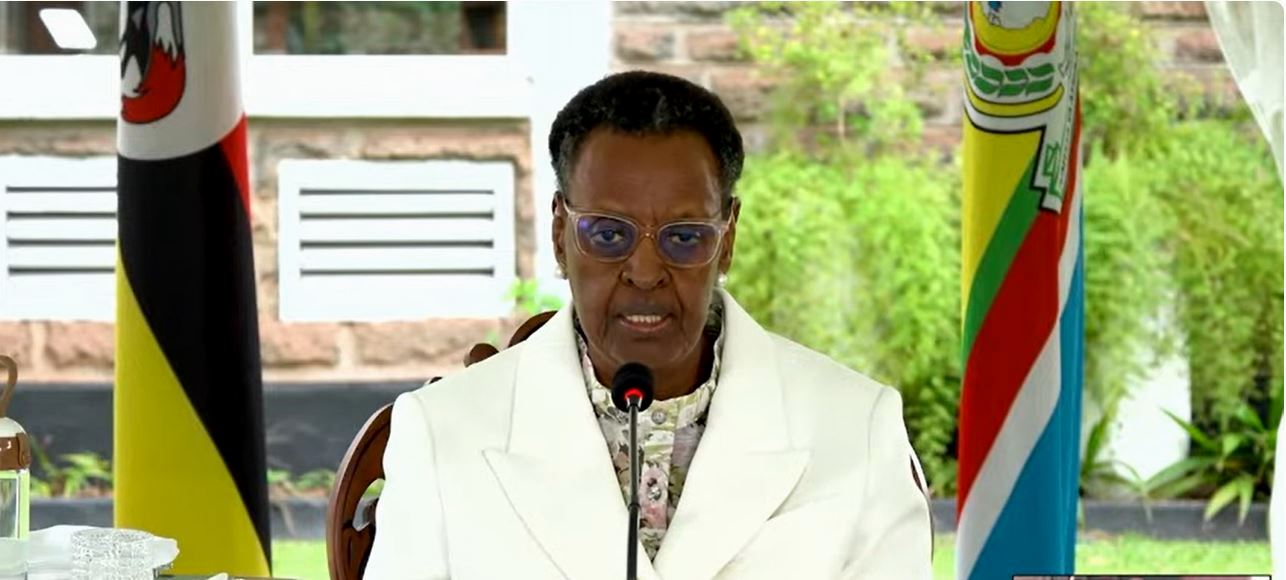
Addressing the congregation, the Guest of Honour, Hon. Janet Kataaha Museveni, First Lady and Minister of Education and Sports commended Makerere University for its pivotal role in transforming lives and shaping Uganda’s future. She congratulated the graduands upon reaching a significant academic milestone and reflected on the broader purpose of higher education in developing both knowledge and character.
She highlighted the success of the Emerging Leaders Programme, launched at Makerere University as a deliberate initiative to cultivate a generation of leaders grounded in values, integrity, and service. Founded on the conviction that higher education must shape both mind and character, the programme equips young people to navigate real-world challenges. She noted that 20 graduates from the inaugural cohort of the Emerging Leaders Programme were being celebrated at the 76th graduation.
“We recognised that our young people face real challenges such as moral decay, violence, addiction, exploitation and sometimes a loss of purpose and direction. The Emerging Leaders Programme was a deliberate commitment to raise a generation of leaders grounded in values, integrity and service to others. Today, 20 graduates represent the early visible fruit of that vision. They have deliberately chosen to build their lives on a foundation of strong moral values and servant leadership,” the Minister said.
The Minister urged graduands to view their achievements not as an end, but as a commissioning. She called upon them to lead with courage, humility, and responsibility, emphasizing that the world needs graduates who embody not just skills and knowledge, but character, integrity, and service. She reminded graduates that as they step into society, they carry the promise of a new Uganda, one where talent, ambition, and knowledge are matched by integrity, purpose, and service,” she exhorted, celebrating the role of higher education in nurturing both excellence and character.
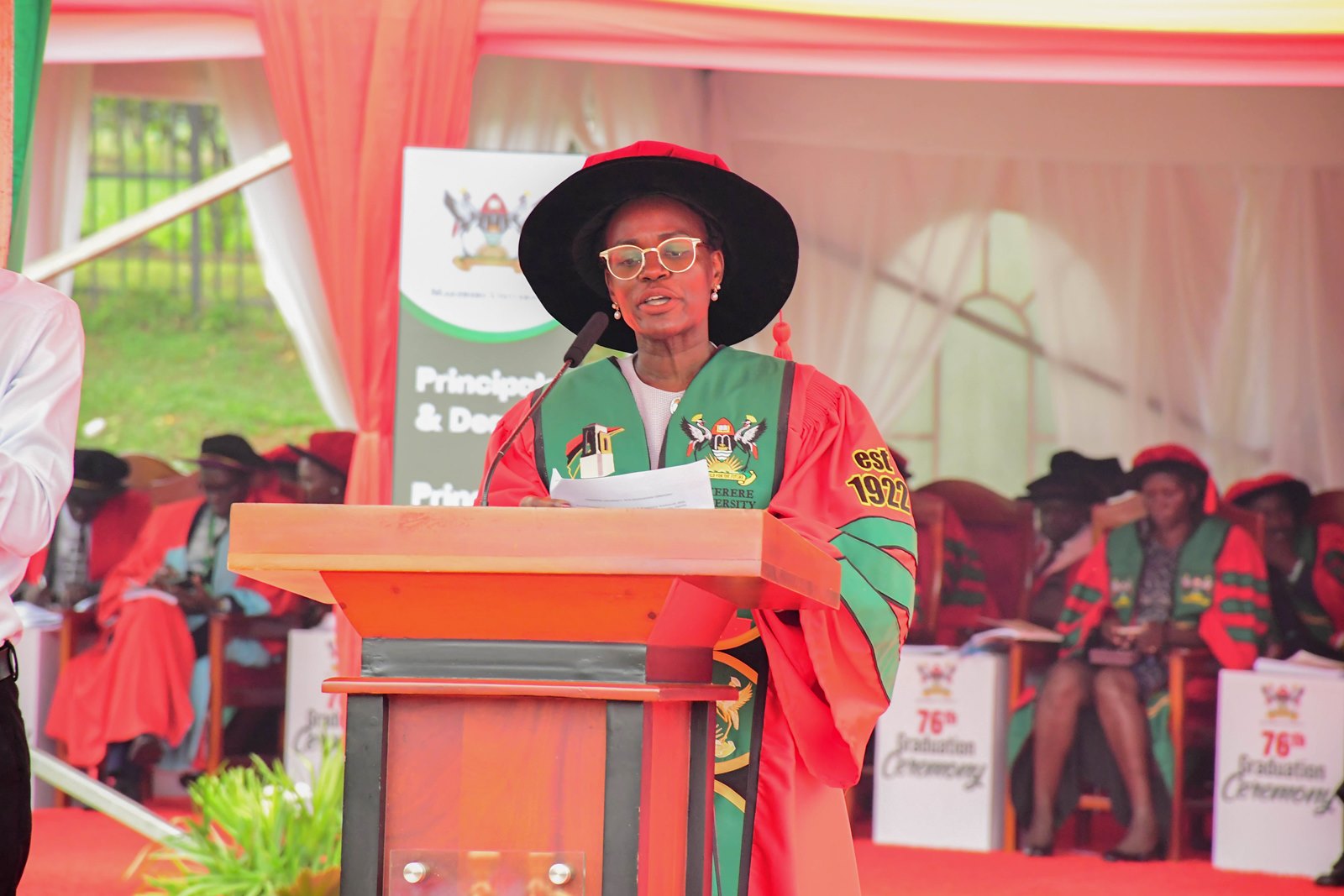
Delivering the commencement address, Dr. Patricia Ojangole, Managing Director of Uganda Development Bank and a proud Makerere University alumnus, lauded the University for equipping graduates with a strong intellectual foundation and the confidence to navigate the complexities of the modern world. She recognized the sacrifices of parents, guardians, and relatives, noting that behind every graduand lies a story of perseverance, encouragement, and unwavering support.
Dr. Ojangole urged the graduands to look beyond traditional employment, highlighting the vast opportunities for entrepreneurship and innovation in today’s digitally connected and globally integrated Uganda. She reminded them that the skills, exposure, and knowledge they possess, position them to create solutions, build enterprises, and drive economic and social transformation.
She emphasized lifelong learning, adaptability, and the cultivation of emotional intelligence and leadership as essential tools for sustained success, noting that the most effective leaders inspire and empower others. Above all, she urged the graduates to guard their integrity, develop strong networks, and remain resilient in the face of setbacks, framing every challenge as an opportunity to strengthen character.
“Learning does not end with this degree. The world of work is constantly evolving—technology advances, markets shift, and customer needs change. Those who stop learning quickly fall behind. Graduates must develop skills in artificial intelligence, data literacy, analytical thinking, forecasting, and strategic planning, while also cultivating emotional intelligence and leadership. These abilities are essential in the 21st-century workplace, where people follow leaders who inspire. Lifelong learning, adaptability, curiosity, and a willingness to embrace change are no longer optional—they are the new currency of corporate and business success,” she submitted.
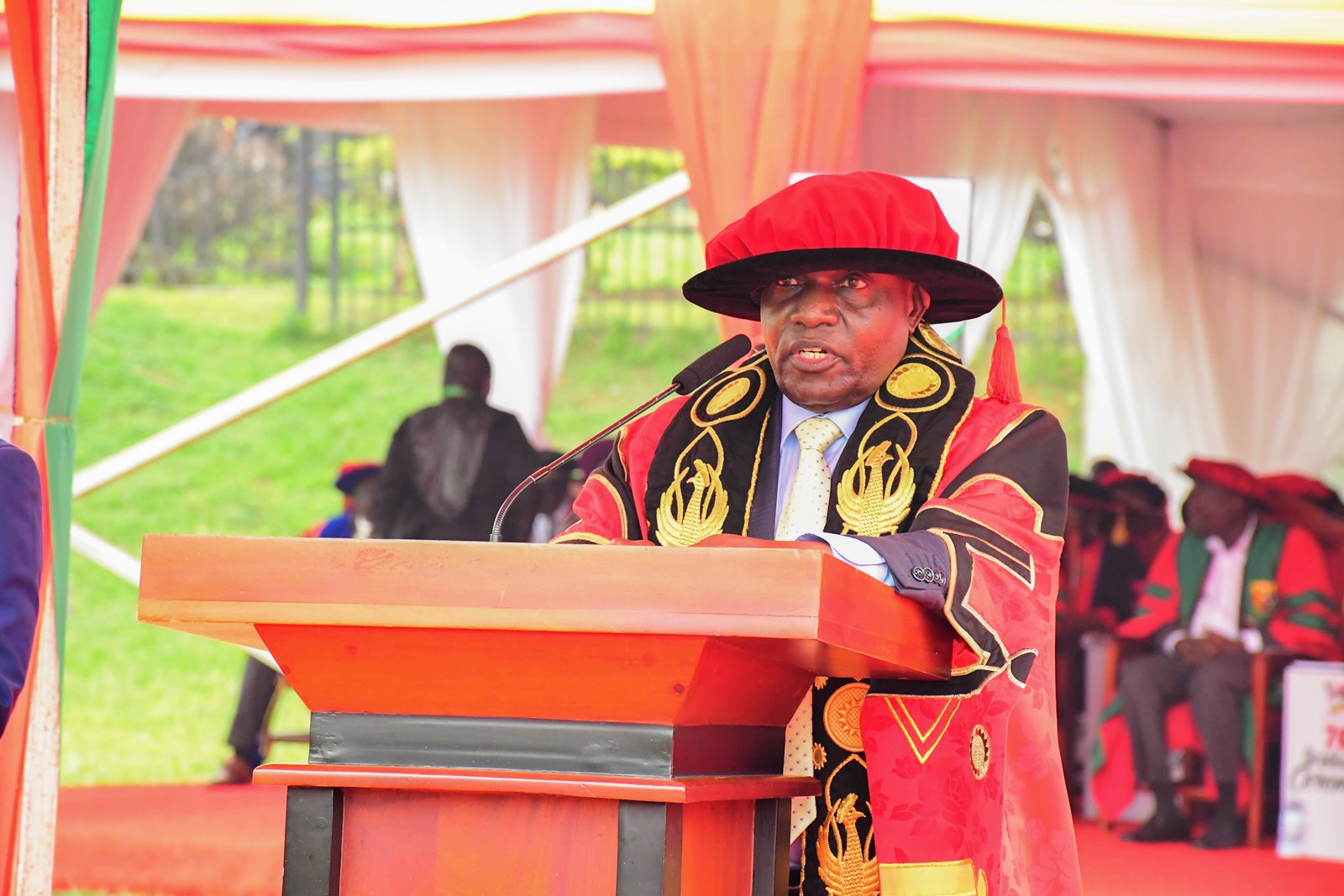
The Makerere University Chancellor, Dr. Crispus Kiyonga urged graduates to view their time at Makerere not only as an academic journey, but as an opportunity to engage with the world around them. He encouraged them to identify opportunities within their communities and the nation at large, highlighting that while some may secure government or private sector jobs, others will need to create their own paths through entrepreneurship.
“Beyond pursuing your courses, seize the opportunities at the university to broaden your knowledge of the world, your country, and the communities in which you live. Be attentive to the opportunities around you—those you can leverage to engage in meaningful and viable activities that bring prosperity,” the Chancellor advised.
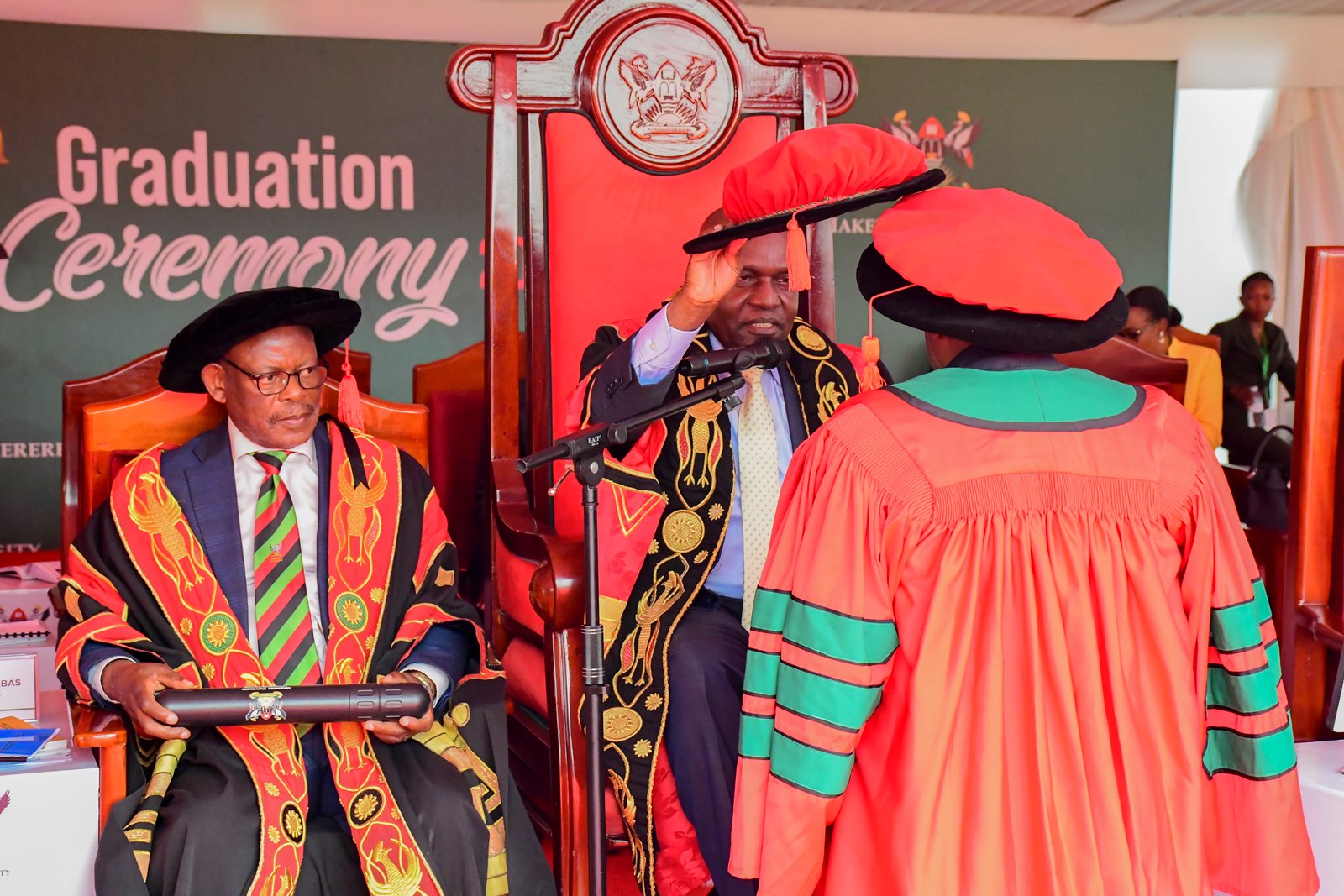
A key highlight of the day was the conferment of the Doctor of Letters (Honoris Causa), of Makerere University upon Dr. Japheth Buleetwa Katto, recognizing him as an Honorary Scholar of Makerere University. A distinguished professional with remarkable achievements, Dr. Katto has made significant contributions to Uganda, the East African region, and beyond, particularly in advancing the accountancy discipline and strengthening the capital markets industry. His work has played a transformative role in Uganda’s social and economic development while also influencing the accountancy profession on a global scale.
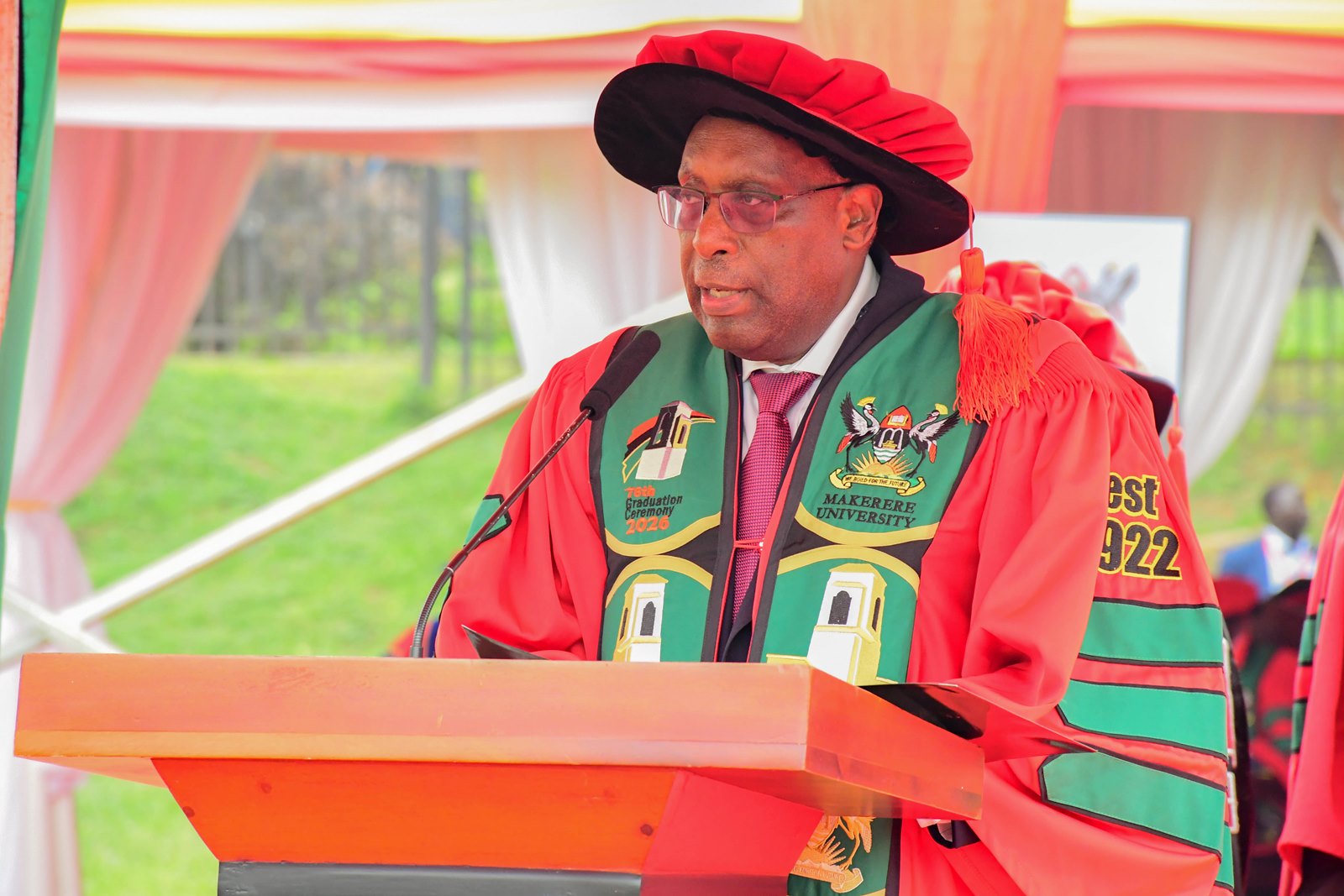
Accepting the Honorary Doctorate Doctorate, Mr. Japheth Buleetwa Katto expressed deep gratitude to Makerere University and those who supported his journey. Reflecting on fifty years in corporate governance and finance, he emphasized a key lesson: integrity, diligence, and ethical leadership are always noticed, and the rewards of sowing excellence will inevitably follow, even if it takes decades.
“This recognition comes as a surprise and brings with it an important lesson, I wish to share with everyone here: people are always watching. They notice when you choose integrity over shortcuts, when you champion good governance even when it is unpopular. They see not only the good, but also the bad and the ugly. We must never forget the eternal law of the harvest: we reap what we sow. If you sow excellence, diligence, and ethics, the harvest—though it may take decades—will always find you,” Dr. Katto said.
Addressing the graduands, Mr. Japheth Buleetwa Katto urged them to embrace the unexpected, recognize that integrity is their greatest strength, and harness the power of networking. He reflected on his own journey, crediting teachers, mentors, colleagues, and family for their support, and encouraged the new graduates to always strive to make a positive impact in everything they do.
Business & Management
Parliament, MoFPD and Makerere Launch Five-Day Training on Integrated Macroeconomic Modelling to Strengthen Fiscal Oversight
Published
5 days agoon
February 25, 2026By
Mak Editor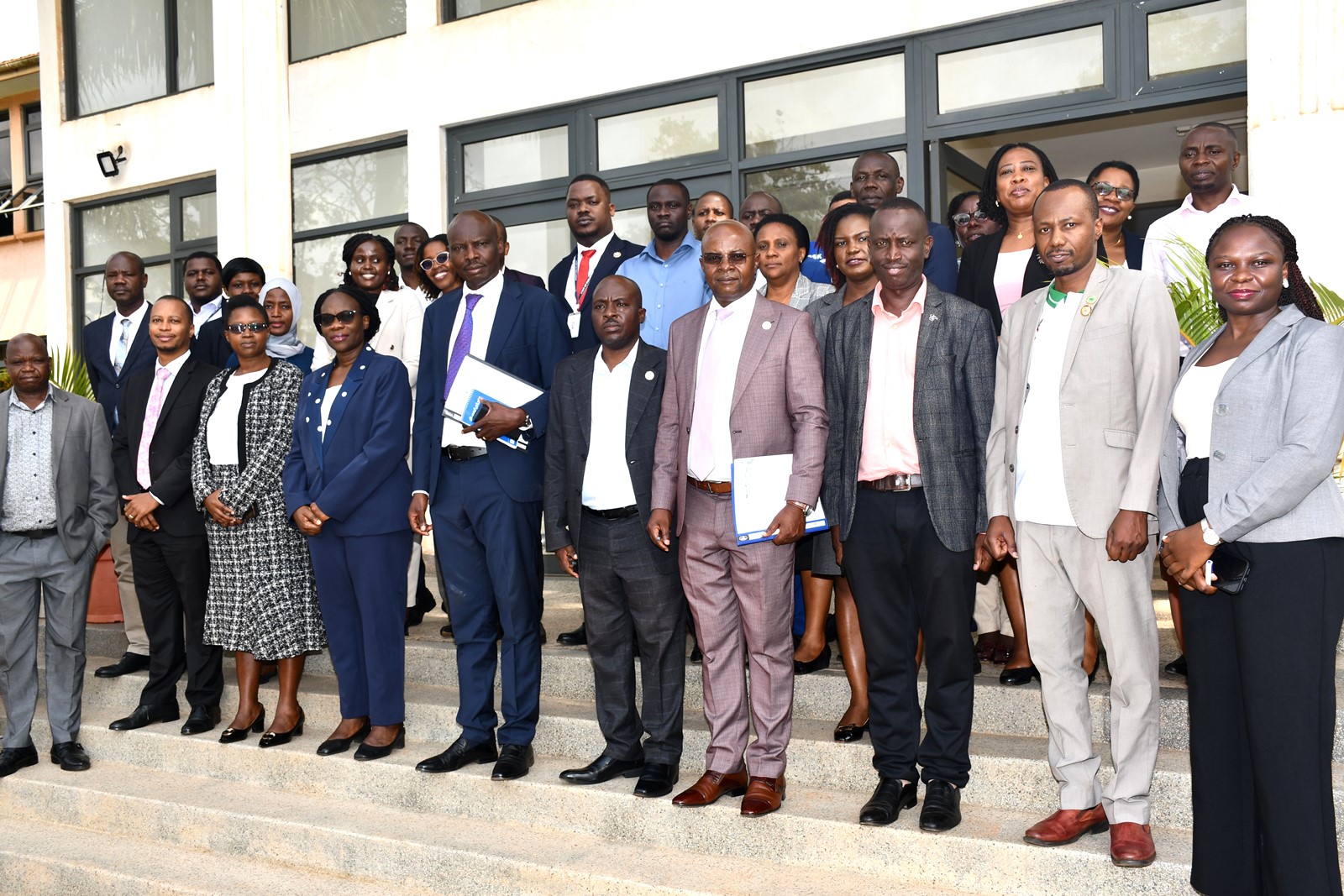
By Wilber Tumutegyereize
In a significant step toward strengthening fiscal governance and enhancing evidence-based decision-making, the Parliament of Uganda, in collaboration with the Ministry of Finance, Planning and Economic Development and Makerere University, has launched a five-day intensive training programme on Integrated Macroeconomic Modelling.
The training brings together staff of the Parliamentary Budget Office (PBO) for a comprehensive capacity-building programme designed to deepen their analytical expertise in assessing national budgets, evaluating fiscal policy options, and generating independent, data-driven advice for Members of Parliament. The initiative forms part of a broader institutional strategy to reinforce Parliament’s oversight role and ensure that national budgeting processes are aligned with Uganda’s development priorities as articulated in the National Development Plan and Parliament’s Strategic Plan.
Strengthening Evidence-Based Fiscal Oversight
Speaking at the opening session on behalf of the Manager of the Public Investment Management (PIM) Centre of Excellence at Makerere University, Dr. Peter Babyenda emphasized that the increasing complexity of Uganda’s fiscal environment demands stronger analytical capacity within Parliament.
“This training comes at a critical time when the demands on Parliament to undertake rigorous scrutiny of fiscal and economic policy have never been greater,” Dr. Babyenda stated.
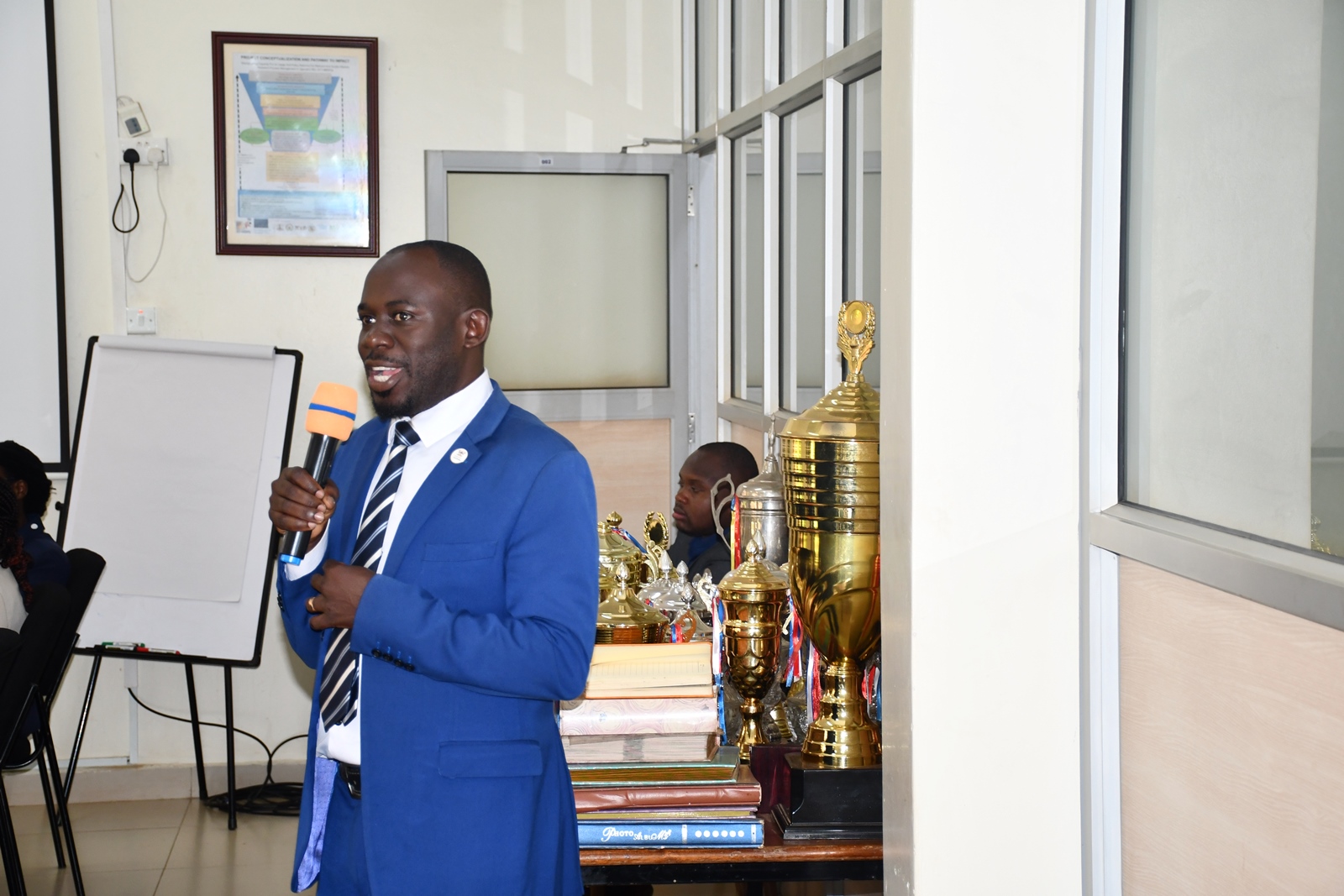
He noted that Parliament’s constitutional mandate—to legislate, appropriate public funds, and oversee government expenditure—requires objective, independent, and technically sound economic analysis. The Parliamentary Budget Office plays a central role in fulfilling this mandate by providing Members of Parliament with timely assessments of revenue projections, expenditure allocations, public debt sustainability, and macroeconomic trends.
Dr. Babyenda explained that the Government’s Integrated Macroeconomic Model provides a holistic framework for understanding the interconnections between economic growth, fiscal policy, public investment, inflation, debt dynamics, and household welfare. By incorporating this model into parliamentary analysis, the PBO will be better positioned to simulate alternative policy scenarios and assess their short- and long-term implications.
Institutional Priorities
Mr. Henry Waiswa, Deputy Clerk to Parliament in charge of Corporate Affairs, contextualized the training within Parliament’s broader institutional reform agenda. He underscored Parliament’s constitutional responsibility to legislate, allocate resources, and oversee the management of public finances.
“Since its establishment under the Budget Act and its anchoring under the Administration of Parliament Act, the Parliamentary Budget Office has become a cornerstone of evidence-based fiscal oversight,” Mr. Waiswa noted.
He observed that Uganda’s public financial management landscape has become increasingly complex, with evolving fiscal pressures, development financing needs, and global economic uncertainties. In such an environment, Parliament must not only examine headline budget figures but also anticipate the macroeconomic and distributional effects of policy decisions on households, businesses, and vulnerable communities.
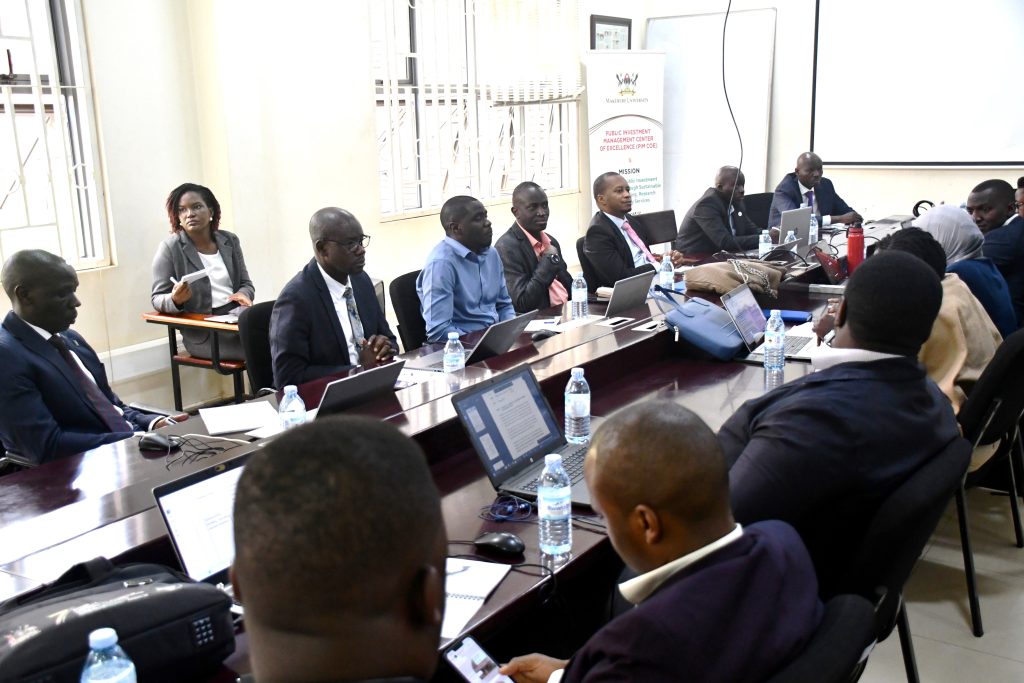
Mr. Waiswa further expressed appreciation to the Ministry of Finance, Makerere University, and the Resource Enhancement and Accountability Programme (REAP) for their technical and financial support in designing and facilitating the training.
Academic Expertise and Analytical Rigor
Professor Edward Bbaale, Director of the PIM Centre of Excellence at Makerere University, highlighted the critical role of academia in strengthening public sector institutions. He emphasized that collaboration between Parliament, the Ministry of Finance, and Makerere University reflects a shared commitment to improving the quality of fiscal governance.
“When our key public institutions work together, we enhance the credibility of economic management and ensure that policy decisions are informed by rigorous analysis,” Professor Bbaale said.
He explained that Integrated Macroeconomic Models combine key economic indicators, such as Gross Domestic Product (GDP), government revenue and expenditure, inflation, debt, investment, and external balances, into a unified analytical framework. These models enable analysts to conduct “what-if” simulations, test policy assumptions, and evaluate trade-offs between competing fiscal priorities.
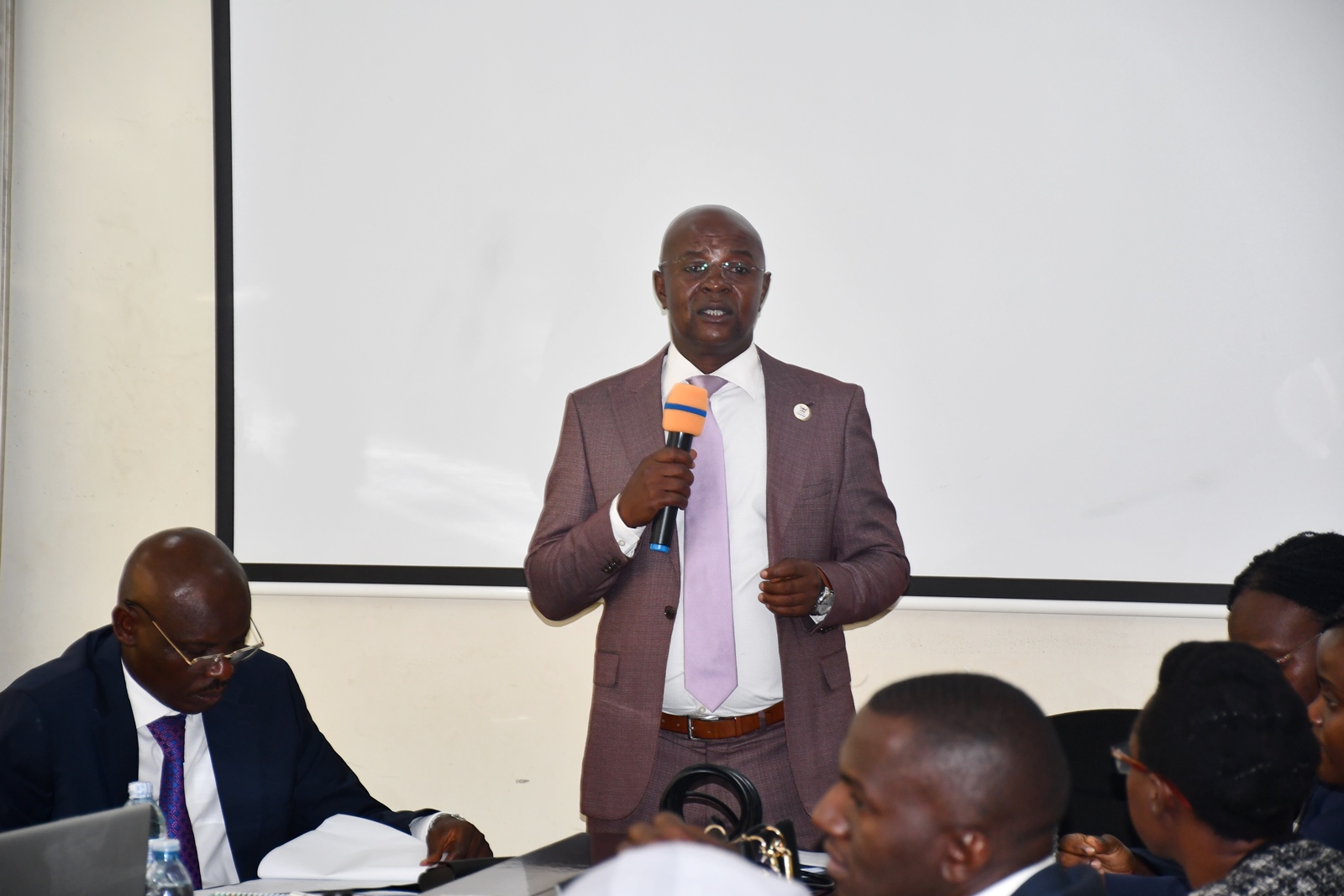
Professor Bbaale urged participants to fully utilize the five-day training to strengthen their technical proficiency and contribute meaningfully to Parliament’s oversight function.
Practical Application and Long-Term Impact
The training programme emphasizes hands-on learning, allowing participants to work directly with the Integrated Macroeconomic Model. Through practical exercises, PBO staff will learn how to:
- Simulate alternative fiscal and macroeconomic scenarios.
- Assess revenue and expenditure implications of policy proposals.
- Evaluate public debt sustainability and fiscal risks.
- Examine distributional impacts on poverty, inequality, and household welfare.
- Develop evidence-based policy briefs for Members of Parliament.
Dr. Babyenda reiterated that the value of the training lies in its practical application.
“The ultimate measure of success will be how effectively participants apply these tools to real parliamentary analysis,” he said. “It is through this application that Parliament can maintain rigorous oversight over public finances.”
A Strategic Investment in Institutional Capacity
By institutionalizing the use of Integrated Macroeconomic Modelling within the Parliamentary Budget Office, Uganda is making a strategic investment in sustainable institutional capacity. The initiative ensures that parliamentary analysts are trained using the same analytical frameworks applied in national fiscal planning, thereby reinforcing both technical quality and independence in budget scrutiny.
As Uganda navigates evolving economic challenges, the strengthened capacity of the PBO will enable Parliament to critically evaluate budget proposals, anticipate policy outcomes, and provide informed, transparent, and accountable oversight of public resources.
The five-day Integrated Macroeconomic Modelling training thus represents a pivotal milestone in advancing Uganda’s commitment to sound fiscal management, democratic governance, and evidence-based policymaking.
Business & Management
Climate variability found to shape malaria trends in Yumbe District
Published
1 week agoon
February 20, 2026
A new study led by scientists from Makerere University School of Public Health has demonstrated that short-term climate variability plays a significant role in malaria transmission in Yumbe District, West Nile sub-region of Uganda. The study, Climate variability and malaria incidence trends in Yumbe District, West Nile Sub-region of Uganda (2017–2021), by Lesley Rose Ninsiima, Rogers Musiitwa, Zaitune Nanyunja, James Muleme, Chris Maasaba, Twahiri Anule, and David Musoke, was published in February 2026 in Malaria Journal through Springer Nature Link.
Today, malaria remains a major public health burden in Uganda, where environmental conditions support sustained transmission. Despite persistent outbreaks in northern Uganda, limited local evidence exists on how the changing climate patterns influence malaria trends. This study addressed that gap by examining five years of malaria surveillance data alongside district-level rainfall and temperature records.

Using routine health facility reports from the District Health Information System (DHIS) and climate data from the Uganda National Meteorological Authority (UNMA), the researchers applied time-series analysis to assess seasonal patterns and delayed climate effects on malaria incidence. Between 2017 and 2021, Yumbe District recorded 2,066,711 malaria cases, with transmission showing clear seasonal peaks between May and July and September and November, aligning with rainy periods.
Their analysis showed that rainfall was the strongest climatic driver of malaria transmission. Increased rainfall was associated with higher malaria cases approximately one month later, reflecting the time needed for mosquito breeding and transmission cycles. In contrast, higher minimum temperatures were linked to reduced malaria incidence, while maximum temperature showed no significant effect. Together, rainfall and minimum temperature explained a substantial proportion of variation in malaria cases, highlighting malaria’s sensitivity to short-term climate fluctuations.
The study findings underscore the value of integrating climate information into malaria surveillance and early warning systems to anticipate transmission peaks and guide timely interventions. Strengthening collaboration between public health and meteorological sectors, the researchers argue, could improve preparedness and support climate-informed malaria control strategies in high-burden settings.
Further details: https://link.springer.com/article/10.1186/s12936-026-05824-0
Trending
-

 Humanities & Social Sciences1 week ago
Humanities & Social Sciences1 week agoMeet Najjuka Whitney, The Girl Who Missed Law and Found Her Voice
-

 General6 days ago
General6 days ago76th Graduation Highlights
-

 Health2 weeks ago
Health2 weeks agoUganda has until 2030 to end Open Defecation as Ntaro’s PhD Examines Kabale’s Progress
-

 Agriculture & Environment1 week ago
Agriculture & Environment1 week agoUganda Martyrs Namugongo Students Turn Organic Waste into Soap in an Innovative School Project on Sustainable Waste Management
-

 General2 weeks ago
General2 weeks agoMastercard Foundation Scholars embrace and honour their rich cultural diversity
